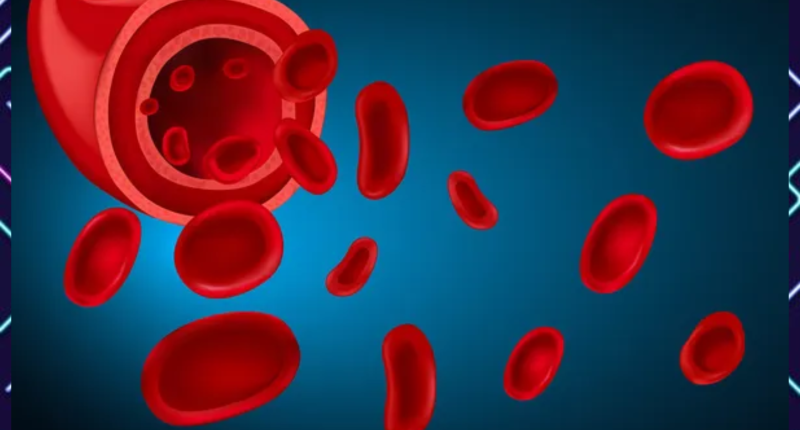Blood proteins are essential components found in blood plasma that play crucial roles in the body’s functioning. They include albumin, globulin, and fibrinogen. Albumin, the most abundant blood protein, helps maintain plasma osmotic pressure and transports substances like lipids and steroids. Globulin, another significant blood protein, aids in immune function and transports ions, hormones, and fats. Fibrinogen is vital for blood clotting. These proteins are integral for various physiological processes such as nutrient transport, immune response, and blood clotting.
Early Cancer Detection: Blood Proteins Predict Cancer Over Seven Years in Advance
Blood proteins can predict the risk of developing various types of cancer up to seven years before diagnosis, according to two research studies published in Nature Communications by researchers at Oxford Population Health.
Key Findings:
- 618 proteins were associated with 19 different types of cancer, including 107 proteins detected in blood samples collected over seven years before diagnosis.
- 182 proteins were present in blood samples collected three years before cancer diagnosis.
- Genetic analyses supported 29 protein-cancer associations, with four associations validated by both long time-to-diagnosis (>7 years) and genetic analyses.
- 38 proteins associated with cancer risk are targeted by currently approved drugs, suggesting potential for therapeutic intervention.
The researchers used powerful proteomics techniques to analyze 1,463 proteins in blood samples from over 44,000 participants in the UK Biobank, including 4,900 individuals who later developed cancer. By comparing protein levels between those who did and did not develop cancer, they identified key differences that could signal cancer risk years before clinical diagnosis.
These findings open up new possibilities for early cancer detection and prevention.
By identifying high-risk individuals early, healthcare providers can monitor patients more closely and potentially implement preventative measures or early interventions to improve outcomes. However, further research is needed to determine the exact role of these proteins in cancer development, identify the most reliable biomarkers, and develop clinical tests.
Types Of Cancer That Can Be Detected Through Blood Protein Analysis
- Breast Cancer
- Prostate Cancer
- Lung Cancer
- Colorectal Cancer
- Liver Cancer
- Leukemia
- Non-Hodgkin Lymphoma
- Ovarian Cancer
These proteins, when analyzed collectively, have demonstrated the potential to detect cancer risk several years before clinical diagnosis, offering a new avenue for early detection and intervention.
ALSO READ: Study Establishes The Influence Of Gut Microbiome Modulation On Social Behavior
Resources
- https://www.labroots.com/trending/clinical-and-molecular-dx/27141/blood-proteins-predict-cancer-diagnosis
- https://www.nature.com/articles/s41467-024-48017-6









